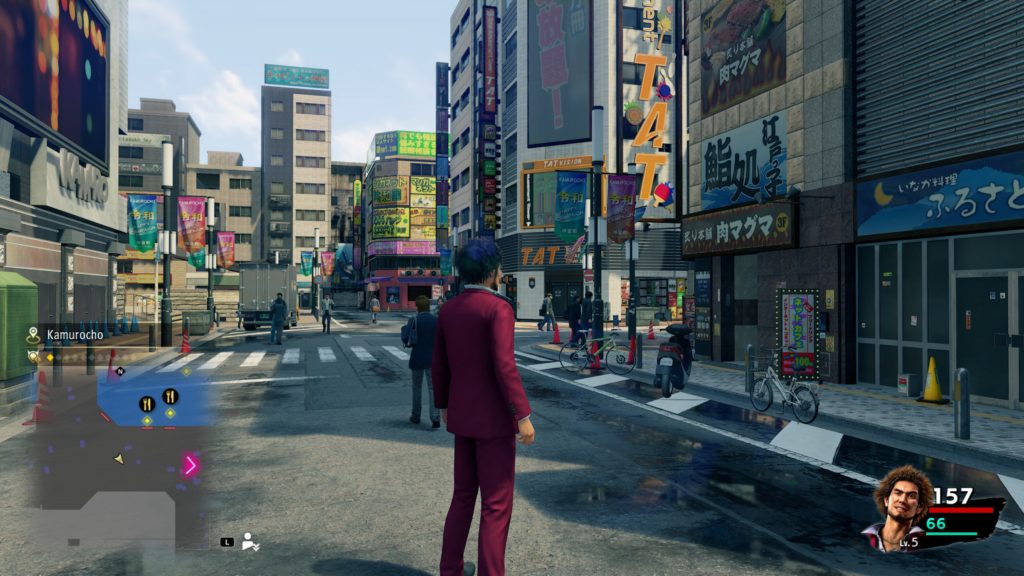Yakuza: Like a Dragon is a serious crime thriller sprinkled with non sequitur B-plots which would not be out of place in an episode of Family Guy. While on paper that might sound like a bad time it’s anything but. Players take the role of Ichiban Kasuga, a new character for the long-running series. One of Ichiban’s (Japanese for number one) quirks introduced in the beginning of the game is that he views everything in life through the lens of a popular turn-based game franchise. This works perfectly as an introduction to the largest changeup in the franchise’s history—the switch to an RPG format where characters leveling up after defeating more and more enemies.
Prior games have been beat-‘em-ups and this implementation catching me off- guard at first. Thankfully it’s a well-done implementation, especially with the addition of a class system allowing you to customize your character’s jobs. Some example jobs include chef, construction worker, break dancer, and pop idol. It’s an eclectic mix to be sure, but the entire game carries itself with a wink and a nudge.
The opening sections were the most compelling for me, where we see Ichiban in his lowly position within a small Yakuza clan. He takes the fall for a murder he didn’t commit out of a profound loyalty for his clan. It works well enough but what sold me on this premise is what came next—Ichiban’s release after eighteen years in prison. He meets his former Yakuza boss, who gives him the cold shoulder (even going so far as to put a bullet in his chest) and leaves him to fend for himself. Going from the year 2000 to the year 2019 is a similar shock to Ichiban, and he’s struggling to even work his new smartphone. You’re forced to rely on the kindness of strangers as you get back on your feet and learn why your former boss has abandoned you. This gets convoluted somewhat later on, but it still held my interest enough to keep playing.
One of the more interesting themes of the game is that of the middle-aged hero. Most games cast the hero as a young person, often in his or her early twenties. Ichiban missed out on his prime years by being locked away for so long. Most of your other party members are also middle-aged, and they also see the possibility of redemption even after the typical gaming world would have turned their noses up at their prospects of being a main character. It’s something I’ve not seen acknowledged in a game before and something that I appreciate being present in this one.
The crowning achievement of this game and the others in the franchise are the side quests and other content not related to the main story. Like a Dragon compelled me to do every piece of side content I could find in a way few other games do. Each of the side quests are so varied and wild, making me want to keep seeing what was in store for me next. You go from rescuing a man’s wild crawfish to helping a homeless man score a date with a soup kitchen worker to racing go-karts around the streets of Yokohama in the blink of an eye. While the rewards themselves are not super compelling, it’s the satisfaction of seeing these side quests through and seeing what wackiness is around the corner which kept me engaged during my playtime.
While this might be the seventh mainline game in the series now, Yakuza: Like a Dragon has surprised and delighted me more than any of the prior ones have by a great margin. Though it is indeed the seventh game, newcomers should have no problems jumping in here as the story is largely unrelated to the prior games. I’d highly encourage you to do so and give this game a high recommendation.



